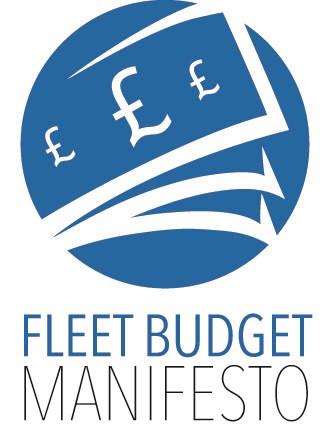Momentum is building for the Fleet Budget Manifesto ahead of formal representation to Treasury at the end of October.
Government ministers from Treasury and the Department for Transport (DfT) attended a briefing hosted by the British Vehicle Rental and Leasing Association (BVRLA) and RAC Foundation at the RAC Club in Pall Mall earlier this month.
In attendance were leasing companies, fleet operators and industry stakeholders. Fleet News and ACFO represented the views of the broader fleet sector.
The focus of the roundtable meeting was to debate changes in the fleet sector and the implications for future Treasury revenues from the company car as vehicles become more efficient and tax-take drops.
The BVRLA wanted to use the session to help inform its own long-term tax roadmap, while it was also an opportunity to air some of the concerns that are shaping the Fleet Budget Manifesto.
Claire Evans, head of fleet consultancy at Zenith, Stuart Adam, senior research economist at Institute of Fiscal Studies (IFS) and Grant Klein, partner at PricewaterhouseCooper (pwc), each presented their views about the primary factors influencing the fleet sector after which the floor was opened up for a broader discussion.
Chatham House rules were in place, so this report will only give a flavour of the topics put under the spotlight during the main debate.

In welcoming everyone, Jay Parmar (above), BVRLA director of policy, said the fleet sector was facing “unprecedented change” which required a “collaborative, consistent view to Government from a broad spectrum of stakeholders”.
He added: “This sector is uniquely placed to support the Government in its Road to Zero industry strategy. But Government has to give the sector certainty and consistency.”
The motor industry contributes almost £40 billion a year in taxes to Treasury, 5% of its total revenue. Most of that (almost £28bn) comes from fuel duties, but this is the area most likely to suffer a decline as cars become more efficient and drivers switch to plug-in-hybrid and full-electric alternatives.
Over the next decade, the IFS forecasts a £16bn reduction, around 0.3% of GDP, said Stuart Adam.
The Government taxes motoring at a higher level than other activities due to its cost to the wider society.
“The idea is to make drivers face a price that reflects the true cost of the activity,” Adam said.
Congestion is biggest cost
A breakdown of the figures reveals congestion to be by far the largest external cost, at 11.3p per car km of the 15.3p total. In contrast, accidents are 1.5p, greenhouse gases 0.8p and local air quality just 0.1p, according to DfT figures.
“Therefore, congestion charging could have big benefits, estimated at 1% of GDP,” said Adam.
His comments support the Fleet Budget Manifesto calls for the Government to begin a consultation into alternative methods of taxing company vehicles, including road and congestion charging.
Adam said: “Fuel duties and VED (vehicle excise duty) are not well targeted on this (congestion). National road pricing could replace much of the (lost) fuel duties, but there are challenges. It may be more palatable as a replacement tax rather than an additional tax.”
That is certainly the view of the Fleet Budget Manifesto, which echoes the Fleet Manifesto of 2015 which called for the Government to consider a road pricing scheme as an alternative to current taxation methods.
Adam believes there is little justification for an annual tax on car ownership. “The ideal for company car taxation is to have a system based on monetary value. Why tilt company car taxation more towards CO2 emissions than for other cars?” he asked.
“We know where we need to get to: electric vehicles, taxed on congestion caused when and where driven. “It’s hard to know how we get there, but we have to start acting now.”
Zenith’s Claire Evans (below) raised concerns that Government benefit-in-kind (BIK) taxation policy isn’t supporting the fleet industry and company car drivers, particularly higher tax rate payers.
“There is an increasing move to cash due to rising car costs, employee demand and a greater ability for companies to manage duty of care online,” Evans said.
This would have a major implication for Treasury revenues, but could be stemmed by addressing issues such as incentives for ultra-low emission vehicles (ULEVs), echoing the Fleet Budget Manifesto calls for the 2% BIK tax rate to be brought forward a year to April 2019.
Evans added: “One-third of fleets not offering cash now are very likely to in the future according to figures from Sewells. Contract hire dominates, but ECO (employee car ownership schemes) is looking more attractive.”

Perk drivers switching
Sewells research also reveals that the proportion of perk car drivers switching to cash is set to increase from 29% to 39%.
“This would result in older cars with higher CO2 and fewer low emission cars going into the used market. It would also lower Treasury revenues,” Evans said. “But could electric vehicles and lower BIK tempt them back?”
One delegate pointed out: “In personal contract hire, CO2 emissions are trending up – and up significantly – while company cars are trending down.
"Ultimately, the question for the Government is: how quickly do you want to transition to zero emissions? You have to have a system that drives that behaviour.”
Grant Klein described road pricing as “flaming difficult”. But he recognised that the public mood has changed to become more environmentally and socially conscious.
“You have to have a clear objective, such as reducing congestion and improving air quality,” Klein said. “It has to be a simple proposition, (choosing from) time of day, level of congestion, pollution, location, distance travelled, vehicle type and journey purpose.”
He also questioned the operating model – who sets charges, who gets revenues, who enforces and how are foreign vehicles charged? But, he added: “Some form of road pricing feels a logical approach to take.”
The broader debate supported a consultation into road pricing as an alternative to current forms of taxation.
However, fleets raised concerns about making changes to taxation models which add complexity for drivers.
“Lots of them don’t understand how BIK works now so adding more complexity will only make things worse,” said one. “We need simplicity and also certainty about the future. The best thing the Government can do is to give us this certainty now.”
An ‘unfair carrot’
Another fleet was critical about long-term support for ultra-low emission cars. “The 2% electric vehicle BIK will be an unfair carrot to drivers because it will increase in the future.
"We need five-year clarity and a future view of 10-15 years for the direction of travel.”
He added: “In 2002, the Government gave clarity of their policy and we had 10 years of benign changes. We knew what the Government wanted to achieve. Now we don’t.”
There was an appreciation of the difficulties for Government to plan too far into the future when it doesn’t know how technology will develop. Effectively, it is asking the Government to pick a winner.
However, one delegate said: “We aren’t asking them to plan ahead; we are asking them to choose an outcome. What do they want to achieve? Then we can find a solution.
"For example, it was CO2, now it’s NOx – we need some policy guarantees to ensure people can make the right choices. Right now it’s a leap of faith.”
Delegates also questioned the lack of consistency in policy related to different taxation policies. BIK, VED, national insurance, parking, congestion, air quality – is there an opportunity to rationalise these to have greater consistency and a clearer outcome?
“Rolling up different taxes into one is an interesting idea,” commented one.
> YOU CAN HELP: Give your support to the Fleet Budget Manifesto

Six action points
- Realignment of benefit-in-kind tax tables to take into consideration CO2 emissions under WLTP; there should not be any distortion caused by the transition and use of correlated NEDC figures for tax purposes.
- Reconsider the 4% diesel supplement.
- Bring forward the 2% BIK incentive for ULEVs from April 2020 to 2019.
- Raise ULEV incentives through a long-term commitment to plug-in grants.
- Commit to a longer-term view of BIK – five years.
- Begin consultation about future and alternative company car taxation policies.





















Login to comment
Comments
No comments have been made yet.